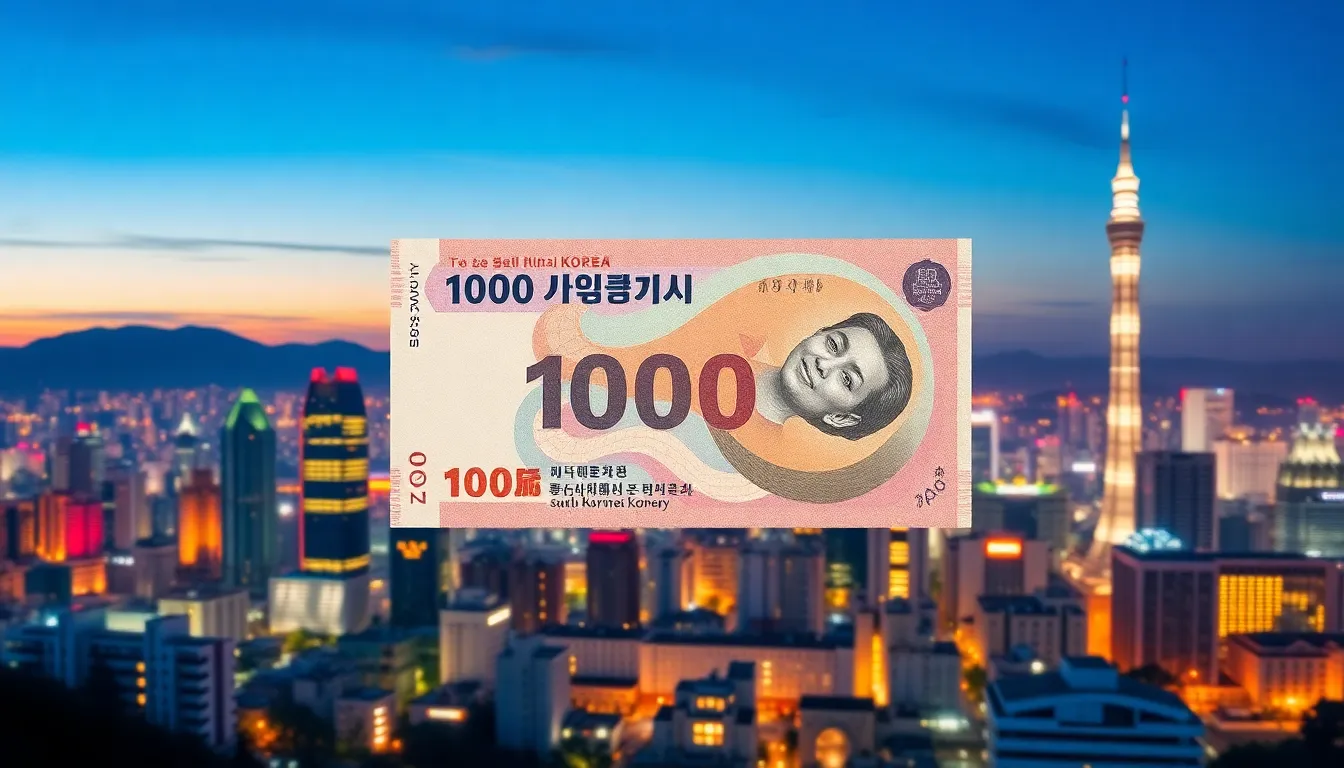Ever wondered how much a billion won is in good ol’ USD? It’s like trying to decipher a secret code that only currency enthusiasts understand. With the South Korean won being a heavyweight in its own right, converting it to dollars can feel like a math exam you didn’t study for. But don’t fret!
Table of Contents
ToggleUnderstanding Currency Conversion
Currency conversion involves determining the value of one currency in terms of another. This process matters not only for travelers but also for businesses engaged in international trade.
Importance of Currency Conversion
Currency conversion serves multiple purposes in the global economy. Foremost, it enables individuals and businesses to engage in international transactions. Stability in currency exchange rates impacts investment decisions. Understanding the conversion rate influences budgeting for travel or imports. In 2023, the South Korean won traded at approximately 0.75 USD, showcasing the significance of accurate conversions. Precise conversion allows consumers to assess prices in their local currency effectively.
How Currency Conversion Works
Currency conversion functions based on fluctuating exchange rates. Financial institutions set these rates, influenced by market demand, economic conditions, and geopolitical events. To convert a billion won into USD, one must multiply the amount by the current exchange rate. For instance, if the rate is 0.00075, one billion won equates to 750,000 USD. Online converters simplify this process, providing real-time rates. Keeping track of daily fluctuations assists in securing favorable rates for large transactions.
Overview of the South Korean Won

The South Korean won serves as the official currency of South Korea. It plays a crucial role in the nation’s economy and global transactions.
History of the Korean Won
The won’s origin traces back to the late 19th century, initially established in 1902. Under Japanese rule, a yen-based monetary system replaced it, leading to multiple fluctuations. After World War II, South Korea reintroduced the won in 1945, followed by significant revaluations in the 1950s and 1960s. Various currencies, including the Korean won from 1975, saw further transitions until the 1990s when South Korea opened its markets. Modernization efforts have contributed to its rise, solidifying the won’s standing in the international arena.
Economic Factors Influencing the Won
The won’s value fluctuates based on multiple economic indicators. Inflation rates, interest rates, and economic growth directly impact its strength. Global trade fluctuates with demand for South Korean exports, affecting the won’s stability. Investor confidence additionally influences currency strength; high foreign investments typically support a stronger won. Political stability and economic policies shape long-term trends, making them integral to the currency’s overall performance. Monitoring these factors benefits businesses and travelers engaged with the Korean economy.
Converting a Billion Won to USD
Converting a billion South Korean won to US dollars requires understanding the current exchange rate and applying the correct conversion method. Being informed about market fluctuations plays a crucial role in achieving the best conversion value.
Current Exchange Rate Insights
As of 2023, the South Korean won is trading at approximately 0.75 USD. Exchange rates can vary daily based on economic conditions and market demand. Financial institutions continuously update these rates, influencing the overall value of conversions. Individuals should check reliable financial news sources or currency converter websites regularly to stay updated on any changes. Significant events in the global economy often impact the won’s value, so awareness of these factors is beneficial.
Conversion Formula and Examples
To convert a billion won into USD, the conversion formula involves multiplying by the current exchange rate. For example, if one billion won equals 750 million USD, using the formula becomes straightforward. Users plug the amount into the equation: total won times the exchange rate equals total USD. Online calculators can simplify this process even further, allowing quick conversions. Keeping track of multiple examples helps solidify understanding. For smaller amounts, such as 100 million won, the conversion would yield 75 million USD using the same rate.
Implications of Currency Fluctuations
Currency fluctuations greatly impact various sectors, especially travel and trade. Understanding these changes helps travelers manage expenses and businesses navigate international markets effectively.
Impact on Travel and Trade
Travelers face increased costs when the won weakens against the dollar. Expenses for accommodations, meals, and attractions may rise, affecting vacation budgets. Meanwhile, businesses engaged in trade also feel the effects. Volatile exchange rates can influence pricing strategies and profit margins. Importers may find increased costs for goods, while exporters benefit from favorable rates. Staying informed about these fluctuations is crucial for making effective financial decisions.
Effects on Investments and Businesses
Investments show sensitivity to currency fluctuations as well. Investors might target regions with strong currencies to maximize returns. Currency risk can also impact stock valuations within the South Korean market. Companies with international operations need to hedge against exchange rate changes to protect profit margins. Monitoring economic indicators like inflation and interest rates can provide vital insights. These factors ultimately affect long-term strategies and contribute to overall financial health.
Understanding the conversion of a billion won to USD is crucial for anyone involved in international trade or travel. The complexities of exchange rates can seem overwhelming but staying informed simplifies the process. By regularly monitoring market fluctuations and utilizing online converters, individuals can make informed decisions and secure favorable rates.
The South Korean won’s significance in the global economy cannot be overstated. As it continues to evolve, keeping an eye on economic indicators will aid in navigating the currency landscape. Whether for personal finance or business strategy, being knowledgeable about currency conversion is a valuable asset in today’s interconnected world.





